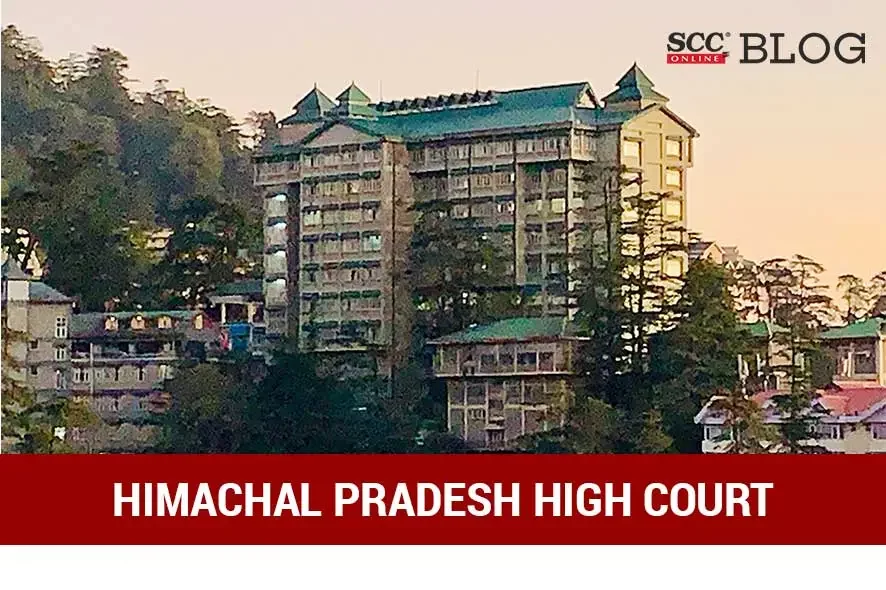Himachal Pradesh High Court: In a revision petition filed by the petitioner, Rakesh Kainthla, J.*, opined that Trial Court fell in error while holding that the respondent was justified in calling the petitioner corrupt, and such right could not be given to anyone as long as the offence of defamation existed in the statute books. The Court opined that calling a person corrupt was per se defamatory as it lowered the estimation of the person in the eyes of the public and could not be justified by resorting to Article 19 of the Constitution. The Court opined that the Trial Court was swayed by the promotion of healthy and vibrant democracy by the right of criticism and there was a right to criticism but not a right to abuse and defame any person. Therefore, the Court set aside the order dated 26-04-2022, passed by the Trial Court and the Court ordered the respondent to be summoned for an offence punishable under Section 500 of the IPC.
Background
In an instant case, the petitioner filed a complaint before the Trial Court for the offences punishable under Sections 500, 504 and 505(1)(c) of the Penal Code, 1860 (‘the IPC’) and asserted that the respondent made a statement in the Press Conference that the petitioner had not toured Kinnaur District more than fifty times during two years and had also withdrawn travel allowance of Rs. 12,54,145. Further, the respondent also stated that the petitioner had toured every district in his capacity as Vice President of Forest Corporation and had drawn the Travelling Allowance of Rs. 2,00,000, and was involved in corruption. The petitioner stated these words by the respondent, amounted to defamation as they lowered the estimation of the petitioner in public eyes.
The Trial Court held that the right of speech and expression was a fundamental right and the public had the right to know. The opposition had a right to criticize the ruling party and such criticism was essential for the vibrant democracy. The Trial Court opined that the politicians should not be thin-skinned and hypersensitive, and since there was no mens rea, the complaint was dismissed.
Thus, the petitioner filed the present revision petition and stated that the Trial Court had failed to apply its mind and the statement amounted to defamation and did not fell within any of the exceptions.
Analysis, Law, and Decision
The Court opined that in the present case, the respondent’s statement that the petitioner had withdrawn the excess amount could amount to criticism of the public official and exposure of his acts. However, to call a person corrupt, lowers his estimation in the eyes of the public and was per se defamatory. The Court opined that the Trial Court was swayed by Article 19 of the Constitution, and it was rightly submitted that the Article was not absolute but was subject to the exceptions.
The Court relied on Vinai Kumar Saxena v. Aam Aadmi Party, (2022) 5 HCC (Del) 662, and opined that the Trial Court fell in error while holding that the respondent was justified in calling the petitioner corrupt, and such right could not be given to anyone as long as the offence of defamation existed in the statute books. The Court opined that calling a person corrupt was per se defamatory as it lowered the estimation of the person in the eyes of the public and could not be justified by resorting to Article 19 of the Constitution.
The Court opined that the Trial Court was swayed by the promotion of healthy and vibrant democracy by the right of criticism and there was a right to criticism but not a right to abuse and defame any person. The Court opined that “granting the right to abuse and defame a person will not make a democracy healthy and vibrant but will turn it into a mudslinging arena where the opposition and dissent will be crushed by abuses and slurs.”
The Court opined that in the present case, nothing was stated in the complaint or the statement on oath that the words used by the accused were intended to provoke the complainant or any other person to commit a breach of peace. Hence, no grounds for summoning the accused for the commission of an offence punishable under Section 504 of the IPC was made out. The Court noted that the complaint was also filed for the commission of an offence punishable under Section 505(1)(c) of the IPC, which provided that the statement should have been made with intent to incite any class or community of persons to commit any offence against any other class or community, and opined that it was difficult to see how calling the complainant corrupt would incite one community against the other. Hence, this offence was also not made out.
Therefore, the Court set aside the order dated 26-04-2022, passed by the Trial Court and the Court ordered the respondent to be summoned for an offence punishable under Section 500 of the IPC.
The matter would next be listed on 12-03-2024.
[Jagat Singh Negi v. Surat Singh Negi, Cr. Revision No. 401 of 2022, decided on 11-01-2024]
*Judgment authored by- Justice Rakesh Kainthla
Advocates who appeared in this case:
For the Petitioner: Nitin Thakur and Udit Shaurya Kaushik, Advocates;







